When we think about movies, it’s often the heroes who capture our imagination and make the headlines. But let’s not forget the villains—the dark, complex characters who challenge our heroes and drive the story’s conflict. From the classic to the contemporary, some villains are so memorable that they leave an indelible mark on cinema history. In this article, we’ll dive into the top 10 movie villains of all time, exploring what makes them unforgettable and how they’ve become iconic figures in film.
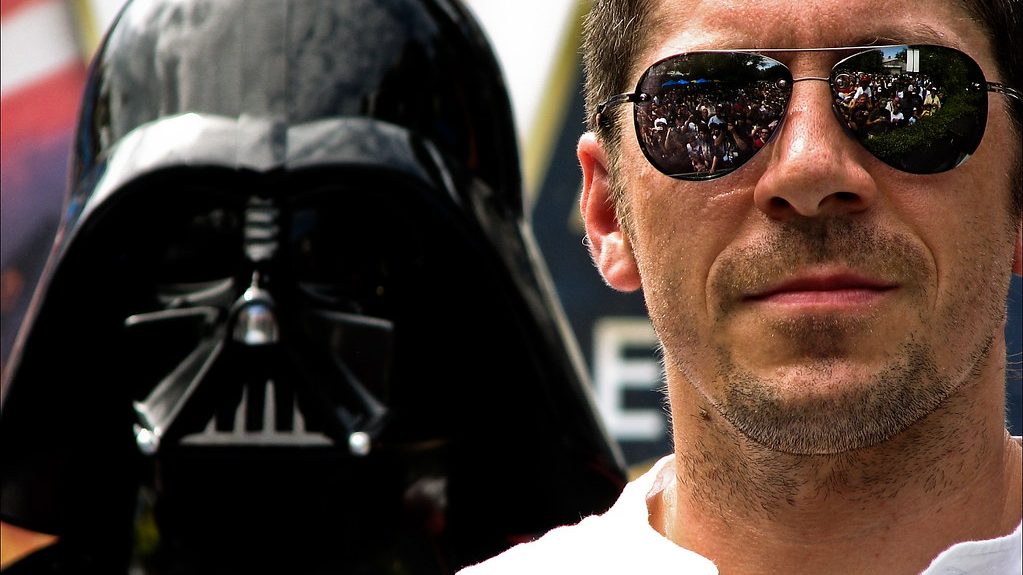
1. Darth Vader – Star Wars (1977)
The Power of the Dark Side
Darth Vader is arguably the most iconic movie villain in history. With his deep, menacing voice and distinctive helmet, he’s a symbol of evil that has transcended generations. But what makes Darth Vader so compelling?
The Complexity of Darth Vader
Darth Vader, formerly known as Anakin Skywalker, embodies the tragic fall from grace. His transformation from a promising Jedi Knight to a Sith Lord is a poignant narrative of corruption and redemption. What’s captivating about Vader is the duality of his character—he’s both terrifying and tragic.
Cultural Impact
Vader’s influence extends beyond film. His image and voice have become cultural touchstones, parodied and referenced in various media. The depth of his character and the richness of his backstory contribute to his lasting impact.
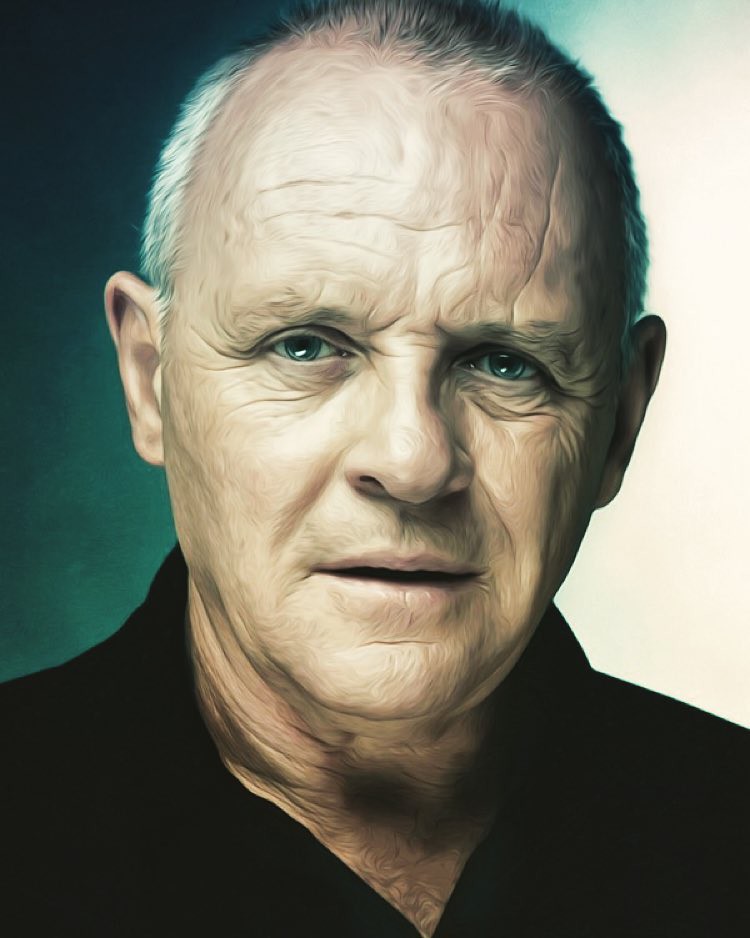
2. Hannibal Lecter – The Silence of the Lambs (1991)
The Art of Psychological Manipulation
Hannibal Lecter, portrayed by Anthony Hopkins, is a masterclass in psychological horror. His calm demeanor and articulate speech contrast sharply with his monstrous nature, making him a truly unsettling character.
Psychological Depth
Lecter’s brilliance as a psychiatrist and his chilling calmness when discussing his crimes create a complex villain who is both intelligent and terrifying. The character’s manipulation and mind games are central to the film’s tension.
Enduring Appeal
Lecter’s character has spurred numerous sequels and prequels, each exploring different facets of his psychopathic personality. His role in The Silence of the Lambs remains a definitive example of how psychological depth can create a memorable villain.
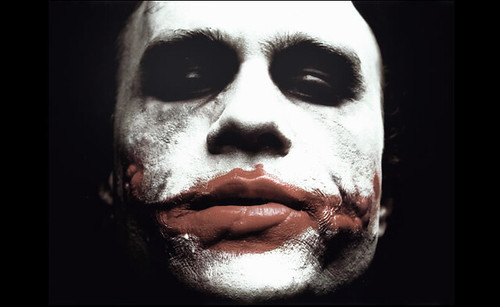
3. The Joker – The Dark Knight (2008)
Chaos Incarnate
The Joker, especially as portrayed by Heath Ledger, is a villain driven by anarchy and chaos. Unlike many villains who seek power or revenge, the Joker’s motivation is to create disorder and watch the world burn.
Unpredictability
The Joker’s lack of a clear agenda makes him particularly dangerous. His actions are driven by a twisted sense of amusement and nihilism, challenging the very fabric of Gotham City. Ledger’s portrayal captures this essence with an unsettling intensity.
Legacy and Influence
The Joker’s influence extends beyond The Dark Knight. His character has inspired a range of interpretations in comics, television, and film, each adding layers to his chaotic persona. Ledger’s performance, in particular, set a new standard for cinematic villains.
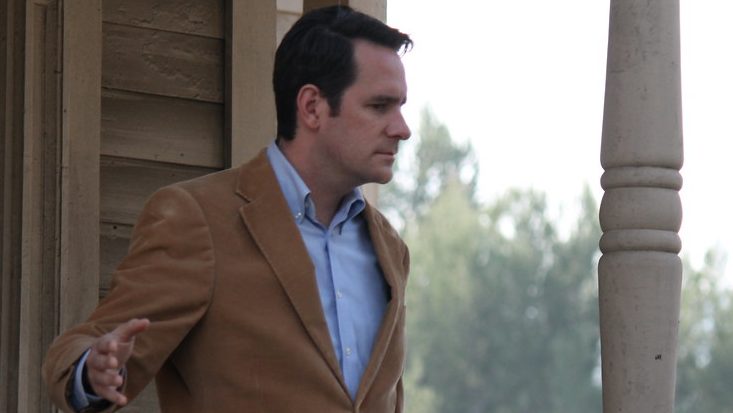
4. Norman Bates – Psycho (1960)
The Dark Side of Human Nature
Alfred Hitchcock’s Psycho introduced Norman Bates, a character whose psychosis is both disturbing and tragic. His split personality and the underlying trauma reveal the complexities of human psychology.
Psychological Horror
Bates’ character explores themes of identity and mental illness, making him a pioneer in the psychological horror genre. His duality—being both a charming motel owner and a murderous psychopath—creates a chilling contrast that drives the film’s suspense.
Influence on Horror
Norman Bates has influenced countless horror films and TV shows, serving as a prototype for many psychological villains. His impact on the genre is evident in the way modern media portrays mental illness and psychological horror.
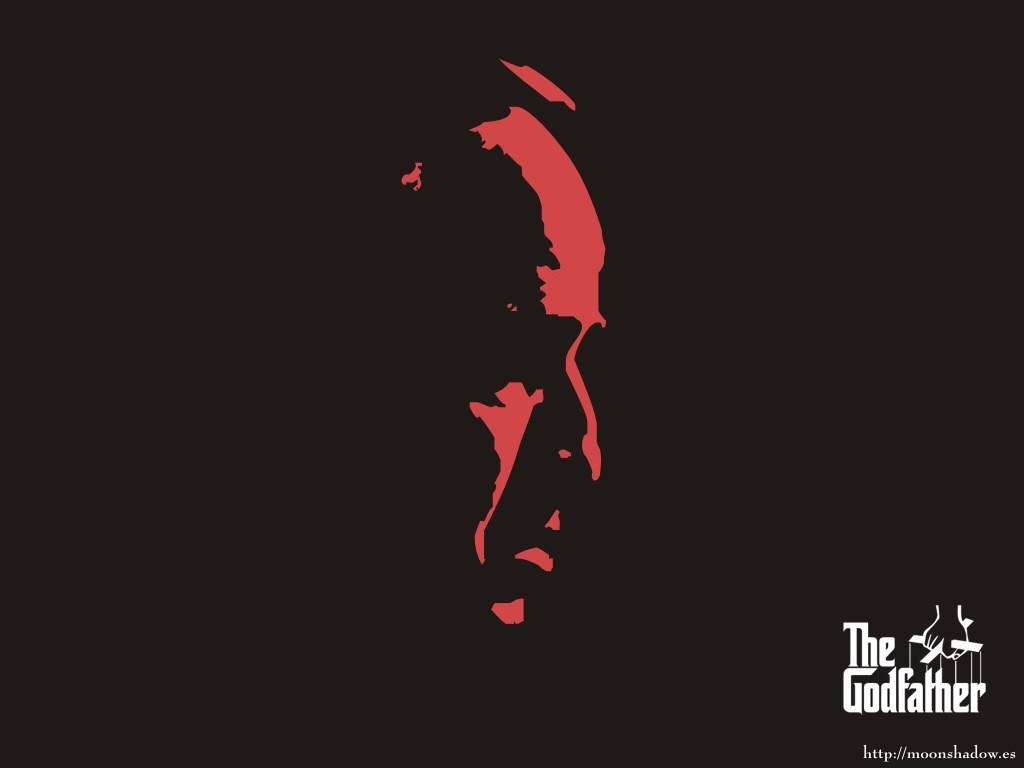
5. Vito Corleone – The Godfather (1972)
The Power of Influence
Vito Corleone, portrayed by Marlon Brando, is a villain whose power comes not from violence but from influence and manipulation. As the head of the Corleone crime family, his presence is both commanding and charismatic.
Complex Morality
Corleone’s character is a study in moral ambiguity. While he engages in criminal activities, he is driven by a sense of loyalty and a desire to protect his family. This complexity adds depth to his character, making him more than a typical villain.
Enduring Legacy
The Godfather’s impact on cinema is profound, with Corleone’s character becoming a cultural icon. His approach to power and family has influenced how villains are portrayed in various media, showcasing a more nuanced view of antagonism.
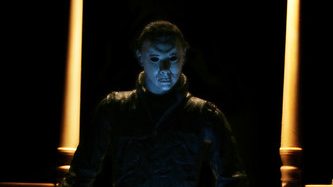
6. Michael Myers – Halloween (1978)
The Epitome of Silent Terror
Michael Myers, the masked killer from Halloween, is a symbol of relentless, silent terror. His lack of emotion and persistent nature create a sense of dread that has made him a staple of the slasher genre.
Silent and Unyielding
Myers’ silence and mask contribute to his eerie presence. Unlike villains who are driven by clear motives, Myers’ actions are driven by an incomprehensible and relentless force, making him a terrifying figure.
Cultural Impact
Michael Myers has become a central figure in horror films, inspiring numerous sequels and spin-offs. His character represents a form of evil that is both inexplicable and unrelenting, making him a lasting figure in the genre.

7. Lord Voldemort – Harry Potter Series (2001-2011)
Dark Magic and Ambition
Lord Voldemort, the dark wizard from the Harry Potter series, is a villain whose quest for immortality and power drives him to commit unspeakable acts. His character is a blend of dark magic and personal ambition.
Evil Personified
Voldemort’s fear of death and desire for absolute power make him a classic example of a villain driven by personal insecurities. His quest to overcome mortality and dominate the wizarding world is both compelling and horrifying.
Influence on Fantasy
Voldemort has become a defining figure in modern fantasy literature and film. His character’s influence can be seen in the portrayal of villains in subsequent fantasy works, showcasing the enduring appeal of dark magic and ambition.
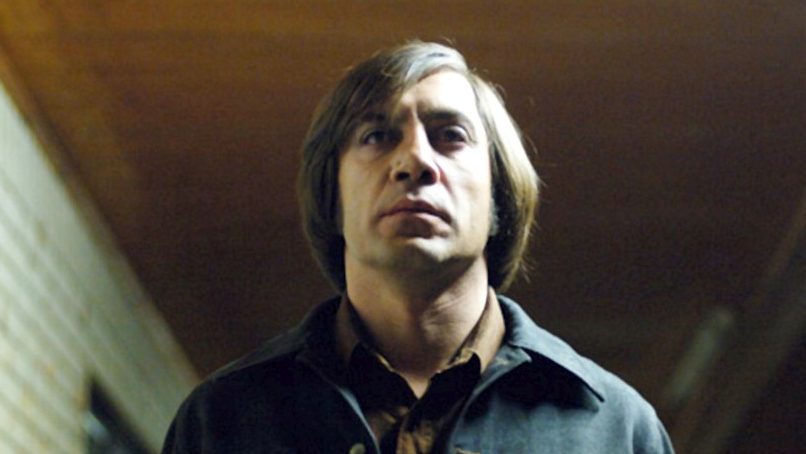
8. Anton Chigurh – No Country for Old Men (2007)
The Personification of Fate
Anton Chigurh is a modern villain who embodies the concept of fate and inevitability. His unyielding pursuit of his own code of ethics makes him a chilling and enigmatic figure.
Relentless and Philosophical
Chigurh’s philosophical discussions about fate and chance add depth to his character. His methodical and ruthless nature, combined with his belief in fate, creates a sense of dread and unpredictability.
Impact on Modern Cinema
Chigurh’s character represents a shift in how villains are portrayed in modern cinema. His presence is both philosophical and menacing, influencing how contemporary villains are depicted.
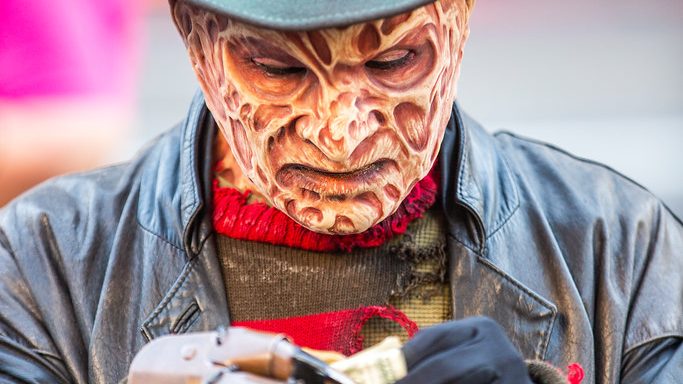
9. Freddy Krueger – A Nightmare on Elm Street (1984)
Dreams Turned Nightmarish
Freddy Krueger is the embodiment of nightmares and fears. His ability to invade dreams and inflict pain makes him a unique and terrifying villain in the horror genre.
Nightmarish and Creative
Krueger’s role as a dream invader allows for a wide range of creative horror elements. His ability to manipulate dreams and reality adds a surreal and disturbing layer to his character.
Legacy in Horror
Freddy Krueger has become a symbol of horror, influencing how nightmares and fears are depicted in film. His character’s impact is seen in the continued popularity of the A Nightmare on Elm Street franchise and its cultural references.
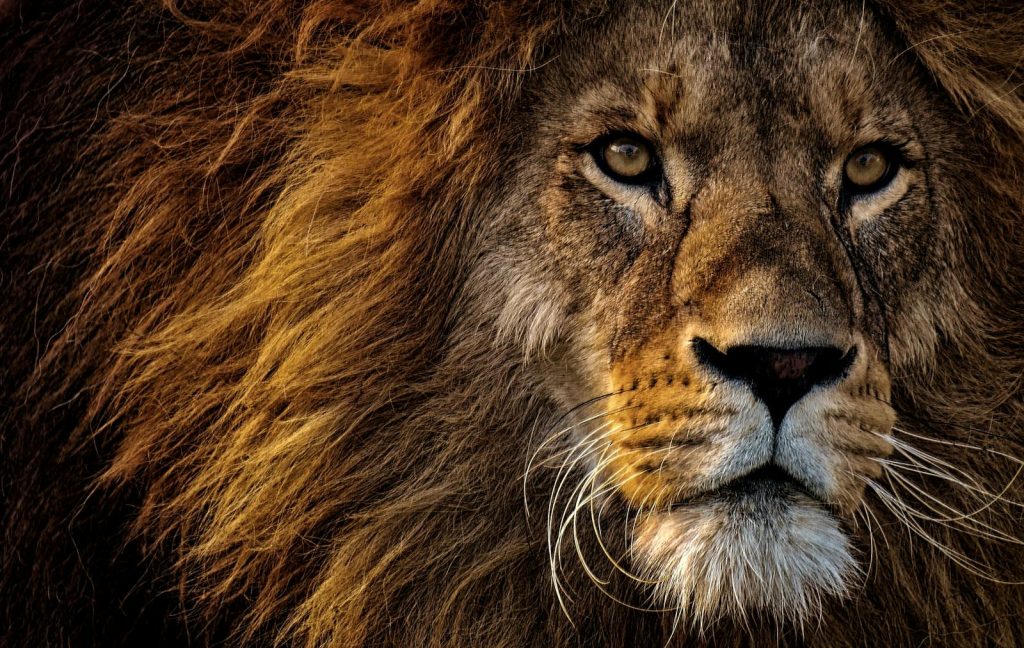
10. Scar – The Lion King (1994)
Betrayal and Ambition
Scar, the antagonist of The Lion King, is a villain driven by jealousy and ambition. His desire for power and his betrayal of his family make him a memorable character in animated film.
Jealousy and Manipulation
Scar’s character is defined by his jealousy of his brother Mufasa and his manipulative tactics to seize power. His role in the film highlights themes of betrayal and ambition in a way that resonates with audiences.
Enduring Appeal
Scar’s impact is evident in his continued popularity as an animated villain. His character’s traits and actions have influenced how animated villains are portrayed, showcasing the blend of personal ambition and moral corruption.
Top 10 Movie Villains of All Time
The top movie villains of all time are more than just antagonists—they are complex characters that challenge our heroes and drive the narrative. From the tragic fall of Darth Vader to the relentless terror of Michael Myers, each of these villains offers a unique perspective on evil and its many forms. Their influence extends beyond their films, shaping how villains are portrayed in various media. By understanding these characters, we gain insight into the nature of villainy and its impact on storytelling.
So, the next time you watch a film, pay close attention to the villains. They might just be the key to understanding the story’s deeper themes and conflicts.


